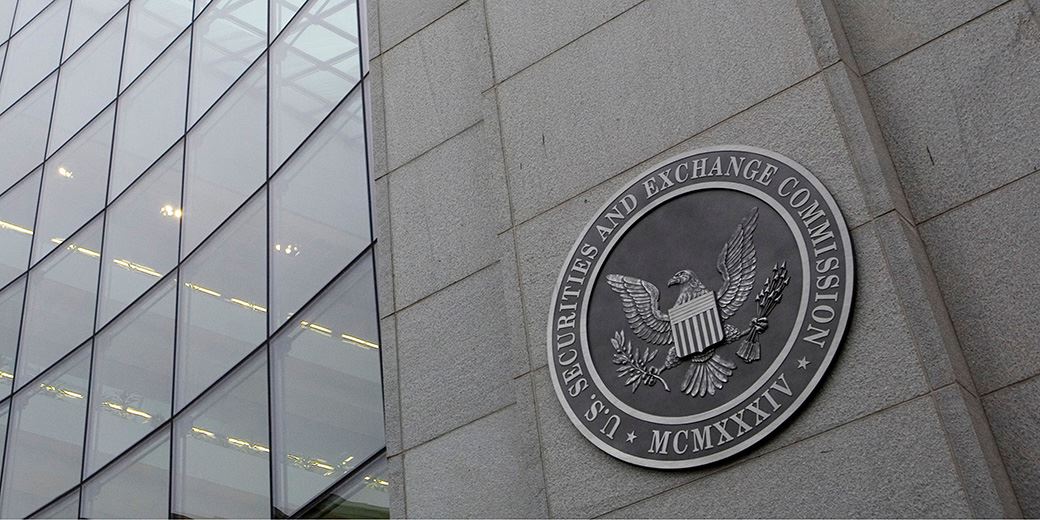Robinhood’s Legal Chief No Longer Leading in SEC Chair Race
23.11.2024 20:00 1 min. read Alexander Zdravkov
Dan Gallagher, Robinhood's Chief Legal Officer, who was once considered the top contender to lead the U.S. Securities and Exchange Commission (SEC), is no longer in the running.
Betting markets had pegged him as a favorite, with Kalshi users giving him a 61% chance of taking the SEC helm. However, his chances have now significantly decreased. Paul Atkins, the CEO of Patomak Global Partners, has emerged as the new frontrunner, with Kalshi users giving him a roughly 60% probability of securing the role.
Fox Business reporter Charles Gasparino recently reported that Atkins is “in the lead position,” citing an anonymous source familiar with the situation. John Reed Stark, a former SEC official, expressed strong support for Atkins, praising him as an excellent choice.
Stark believes that, with his background as a former SEC commissioner, Atkins could bring a more balanced and thoughtful approach to cryptocurrency regulation. Stark noted that Atkins tends to favor free-market principles and is against excessive regulation, which could bode well for the crypto industry.
Meanwhile, Robert Stebbins, former SEC General Counsel, has faced significant backlash within the crypto community. Ripple CEO Brad Garlinghouse called his potential nomination “unconscionable.” The current SEC Chair, Gary Gensler, is set to leave the agency on January 20, and SEC Commissioner Jaime Lizárraga, who opposed several Bitcoin ETF proposals, is also expected to step down in January.
-
1
SoFi Returns to Crypto with Trading, Staking, and Blockchain Transfers
27.06.2025 8:00 1 min. read -
2
GENIUS Act Could Reshape Legal Battle over TerraUSD and LUNA Tokens
30.06.2025 9:00 1 min. read -
3
Whales Buy the Dip as Retail Panics: This Week in Crypto
29.06.2025 14:00 3 min. read -
4
History Shows War Panic Selling Hurts Crypto Traders
28.06.2025 18:30 3 min. read -
5
Ripple Faces Legal Setback as Court Rejects Bid to Ease Penalties
26.06.2025 16:54 1 min. read
Citigroup Explores Launching Stablecoin as Banks Embrace Crypto Shift
Citigroup is evaluating the potential launch of its own U.S. dollar-backed stablecoin, signaling a growing shift in sentiment among traditional financial institutions toward digital assets.
JPMorgan CEO Jamie Dimon Comments Stablecoins
JPMorgan Chase CEO Jamie Dimon remains skeptical of stablecoins—but says ignoring them isn’t an option for the world’s most powerful bank.
Crypto Cycles are Evolving: Analyst Explains Why Old Patterns no Longer Work
According to crypto analyst Atlas, the traditional four-year cycle that once defined Bitcoin and altcoin market behavior is now obsolete.
Kraken Launches U.S. Crypto Derivatives Platform, Eyes Broader Market Expansion
Kraken has officially launched its U.S.-regulated crypto derivatives platform, marking a major step toward merging traditional finance tools with digital asset markets.
-
1
SoFi Returns to Crypto with Trading, Staking, and Blockchain Transfers
27.06.2025 8:00 1 min. read -
2
GENIUS Act Could Reshape Legal Battle over TerraUSD and LUNA Tokens
30.06.2025 9:00 1 min. read -
3
Whales Buy the Dip as Retail Panics: This Week in Crypto
29.06.2025 14:00 3 min. read -
4
History Shows War Panic Selling Hurts Crypto Traders
28.06.2025 18:30 3 min. read -
5
Ripple Faces Legal Setback as Court Rejects Bid to Ease Penalties
26.06.2025 16:54 1 min. read


